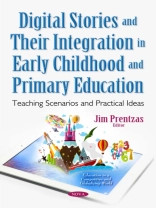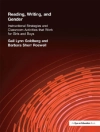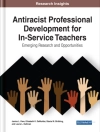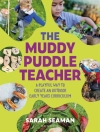Jim Prentzas received the diploma degree in computer engineering and informatics and the MSc and Ph D degrees from the Department of Computer Engineering and Informatics, University of Patras, Greece, in 1997, 2001, and 2003, respectively. He is currently an associate professor in the Department of Education Sciences in Early Childhood, School of Education Sciences, Democritus University of Thrace, Greece. His main research interests include artificial intelligence, e-learning and Web applications. He has published more than 70 papers in international journals, edited volumes, and proceedings of conferences and workshops. He has also co-edited two volumes published by an international publisher. He has participated in a number of National and European research projects. This book is an edited collection of chapters regarding the integration of digital stories in the classroom, focusing on early childhood and primary education. Storytelling has always been an effective way of teaching all ranges of subjects at all educational levels, especially in early childhood and primary education. Digital storytelling combines the advantages of storytelling and digital tools. Digital stories attract the interest of students and provide them with motives to take part in learning activities in collaboration with their classmates and teachers. They have become a popular resource of Information and Communications Technology (ICT). Digital stories can be a valuable tool to educators. However, as is the case with many ICT resources, teachers need practical ideas about how to integrate them in teaching and learning. This book covers a gap in the international bibliography regarding digital storytelling. It discusses teaching scenarios that exploit digital stories in a wide range of subjects in early childhood and primary education. Subjects covered in teaching scenarios discussed in this book include language, time concepts, music, poetry, social tolerance in multicultural societies, mathematics, environmental issues, foreign language learning, healthy nutrition, mythology and geography. Such a diversity of issues concerning integration of digital stories in early childhood and primary education has not been dealt with in other published books until now. The discussed teaching scenarios involve two- and three-dimensional digital stories implemented with the visual programming tools Scratch and Alice. Scratch is implemented by the Massachusetts Institute of Technology (MIT) and enables the creation of two-dimensional multimedia applications. Alice is implemented by Carnegie Mellon and enables the creation of three-dimensional multimedia applications. Both of these tools are available at no charge and are popular in education throughout the world. The created digital stories have been combined with self-assessment e-activities created with JClic to provide further advantages to students. JClic is a free software tool implemented in Spain that enables the creation of interactive assessment activities addressed to early childhood and elementary education. The book is organized into three main parts and consists of ten chapters. The first part consists of two chapters discussing general background issues concerning storytelling, ICT and digital storytelling in education. The second part consists of four chapters discussing teaching scenarios involving early childhood education. The third part consists of four chapters discussing teaching scenarios regarding primary education.Target Audience:Early childhood teachers, school teachers as well as academic and teaching staff members of Universities that would like to integrate digital stories in learning and teaching, Undergraduate/postgraduate students as well as academic and teaching staff members of University Departments educating pre-service and in-service teachers, Undergraduate/postgraduate students as well as academic and teaching staff members of Computing Departments, Researchers working in the field of education, educational technology, digital storytelling, multimedia and computing education, Programmers and researchers developing tools concerning digital storytelling, multimedia and computing education, Computer Science school teachers who are interested in: (a) teaching students how to create interdisciplinary multimedia applications while learning programming concepts and (b) collaborating with teachers teaching other fields.
Jim Prentzas
Digital Stories and Their Integration in Early Childhood and Primary Education [PDF ebook]
Teaching Scenarios and Practical Ideas
Digital Stories and Their Integration in Early Childhood and Primary Education [PDF ebook]
Teaching Scenarios and Practical Ideas
Cumpărați această carte electronică și primiți încă 1 GRATUIT!
Format PDF ● Pagini 213 ● ISBN 9781536100167 ● Editor Jim Prentzas ● Editura Nova Science Publishers ● Publicat 2016 ● Descărcabil 3 ori ● Valută EUR ● ID 7216000 ● Protecție împotriva copiilor Adobe DRM
Necesită un cititor de ebook capabil de DRM












